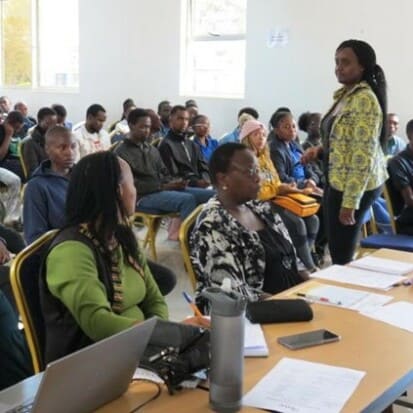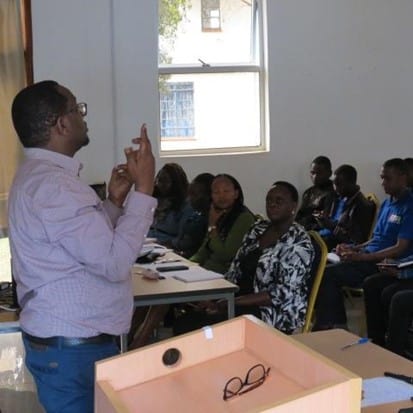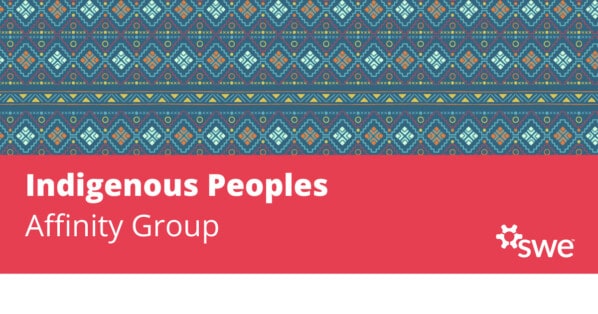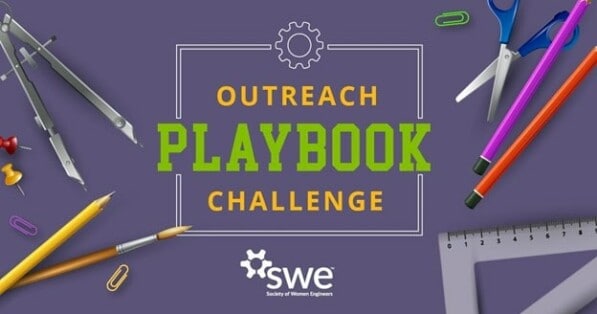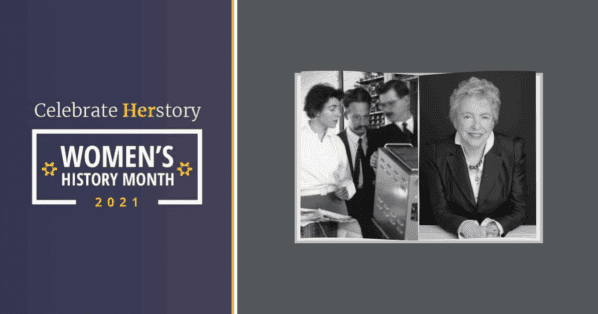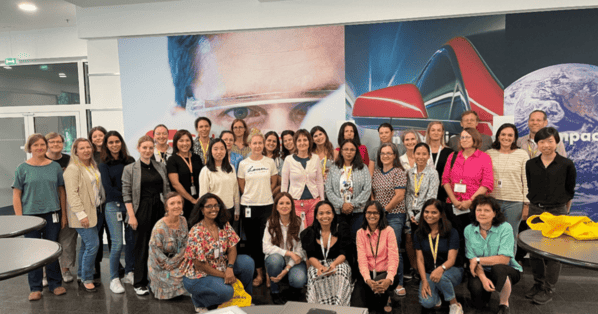Edge Yourself for Life is a three-month mentorship program by SWE Nairobi in partnership with Schneider Electric Kenya. The goal of the program is to prepare students for post-college life, and the first cohort included 126 students from the Institute of Energy Studies and Research (IESR).
Read on to find a summary of the speakers and topics included in the 2023 Edge Yourself for Life mentorship program.
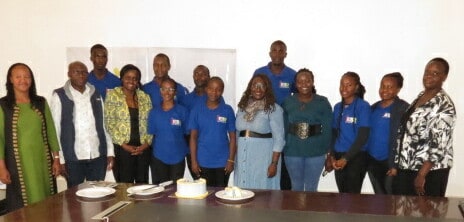
Week 1
The first two weeks of the program focused on career paths within engineering. Attendance included IESR students and faculty members, women in engineering from Kenya Power, SWE Nairobi members and a number of individuals from Schneider Electric.
To open the program, Dr. Jeremiah Kiplagat, Director of IESR, encouraged students to make the most of the mentorship program and the opportunities that would arise from it. Dr. Kirimi, a faculty member from IESR, applauded SWE Nairobi for its efforts in supporting women in engineering.
The first session was moderated by Eng. Monica Karanja, SWE Nairobi’s Vice President and Chief Engineer at Kenya Electricity Generating Company (KENGEN). Panelist Dr. Eng. John Mativo, Managing Director of Kenya Electricity Transmission Company (KETRACO), provided an overview of Kenya’s energy sector from the policy stage to the distribution and retail stages. He also shared his career journey and gave advice for emerging engineers, such as doing a SWOT analysis of your life
Another panelist, Carol Koech, Country President of Schneider Electric, East Africa, covered changing trends in the energy industry such as digitization, energy transition, diversity, and sustainability. She touched on how AI, globalization, mentorship, and the development of soft skills will influence the trajectory of the industry going forward.
Week 2
Alice Ngatia, Marketing and Communication Business Partner, Anglophone Africa, Schneider Electric, moderated the second session of the program on engineering pathways and provided an introduction to SWE.
Panelist Eng. Monica Karanja, spoke about engineering career paths and opportunities in sectors such as smart buildings, solar PV, and electrical equipment design. She also shared about practical aspects of working in the engineering industry and encouraged students to use their attachment opportunities to determine what roles would be the best fit.
Completing the panel, Maureen Ogendo, Power Systems Specialist at Schneider Electric, provided an overview of what electrical engineers do and what fields they work in. She also outlined various engineering career paths, core competencies, and emerging trends,
This session challenged the mentees to find their place in the engineering space and claim it.
Week 3
The Engineer Design Thinking session was the first of three sessions covering technical skills and competencies. Design thinking is a human-centered approach to problem-solving that emphasizes empathy, creativity, experimentation, and collaboration.
Janet Tarus, SWE Nairobi’s Mentorship and Membership Director, moderated this session.
Panelist Everlyne Onyango, County Design Engineer at Kenya Power, covered how to incorporate design thinking into planning, evaluating, and developing electrical systems. She emphasized that the customers’ needs alongside the standards required are crucial factors to be considered in the design process to avoid over-designing or under-designing.
Panelist Noel Saya, Tendering Manager, Anglophone Africa, Schneider Electric, spoke on the design thinking process. Noel ended the session by reminding the students of a quote by Jack Welch: ‘’If the rate of change on the outside exceeds the rate of change in the inside, the end is near.’’ We all need to embrace change and continuous improvement to be adaptable.
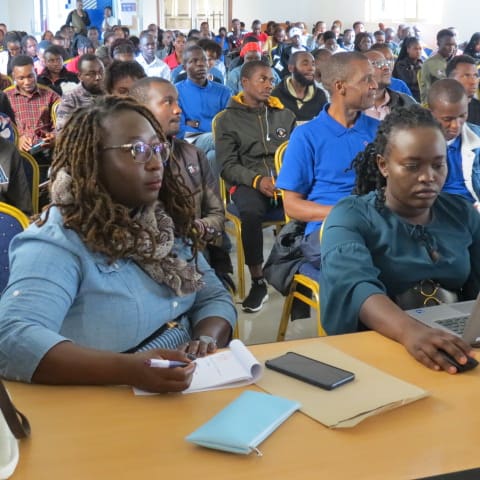
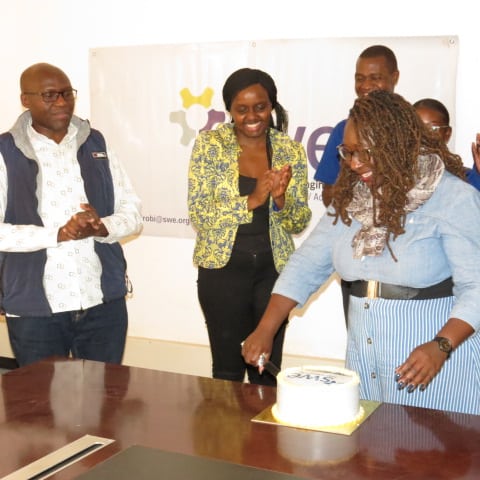
Week 4
Critical thinking and problem-solving skills go hand in hand, and both were covered in this session on critical thinking and problem solving in engineering, featuring the following three engineering professionals:
Paul Kioko, Power Quality Engineer at EATON, moderated the session and reminded the attendees that critical thinking is applicable in all aspects of their lives.
Chetan Ratna, Building Segment Leader, East Africa, Schneider Electric, shared the steps to effective critical thinking and problem solving. He also advised the students to factor in the values of an organization when looking for a job and to link those values to their own.
Roy Otieno, Offer Manager, Power Products, Anglophone Africa, Schneider Electric, covered the steps to understanding and solving any problem, the barriers to critical thinking, and the key qualities of a critical thinker. Roy’s final words to the students were to ‘’start early, be intentional and never stop learning.’’
Week 5
This highly interactive Programming for Electrical Electronics Engineers session was moderated by Martha Kihara, an Electrical Engineer working for KENGEN. The discussions centered on the Internet of Things (IoT) and automation.
Panelist Alan Kipsang, Enterprise IT Lead at Safaricom, encouraged the students to become members of communities of like-minded individuals interested in technology to grow their skillset. He shared about the key skills that have helped him excel in his career, emerging trends in IoT, and how IoT has impacted electrical engineering.
Panelist Peter Kamau, Product Application Engineer, Industrial Automation, Schneider Electric, emphasized the importance of effective communication. He stressed that engineers must strike a balance between using soft skills and technical skills in order to become a successful and grounded professional in the field.
Week 6
Weeks 6 and 7 of the program focused on helping students improve their soft skills, with a particular focus on effective communication.
In Week 6, Symphrose Ochieng, Utilities and Infrastructure Segment Lead, Schneider Electric, East Africa, covered the seven C’s of effective written and oral communication. She helped students apply these skills to real-world scenarios to build social capital and increase their confidence and leadership.
Maureen Ogendo returned to share about effective communication including technical communication. She elaborated on the importance of proper documentation to reduce conflict throughout engineering projects.
Week 7
This session, centered on early-career engineers, used storytelling to highlight the opportunities the speakers have encountered so far in their careers.
Issac Machuki, Graduate Trainee at Schneider Electric, spoke about his journey to employment. He urged the students to take their final year projects seriously and emphasized the importance of adaptability, upskilling and consistency.
Mercy Wanyonyi, Graduate Application Engineer at Schneider Electric, shared about the lessons she has learned in her career so far. Her parting wisdom to the students was to ‘’learn, grow, repeat.’’
Both mentors emphasized the need for the mentees to be proactive and take charge of their careers early in life. Major themes of the session were continuous upskilling, adaptability, intentionality, and growth.
Final Sessions
The final sessions of the Edge Yourself for Life Mentorship Program took place in-person at IESR in Nairobi. We had two remarkable speakers who covered public speaking and personal branding.
Alice Ngatia, who works as the Marketing and Communication Business Partner, Anglophone Africa, Schneider Electric, guided the students on starting their personal branding journey. She spoke about building a personal brand, standing out, and knowing your audience.
Then Maxwell Kihara, Lead Coach at Peak Speakers Academy, shared his wisdom and experience gathered over his years in public speaking. He shared strategies to help students understand their personalities, overcome nervousness, and conduct proper introductions. He reminded the students that practicing was the only way they would enhance their public speaking skills.
The participants learned and shared a lot during the intense three months of this mentorship program. The experience was great for both students and mentors, and we see it as the beginning of more impactful projects to come. We are also grateful to all our mentors and partners for their unwavering support and dedication.
Keep up with SWE Nairobi by following our social media accounts!
X/Twitter: @NairobiSwe
Instagram: @swe_nairobi
Facebook Page: SWE Nairobi Facebook Page
LinkedIn Page: SWE Nairobi LinkedIn Page
Author
-
Umi is a Telecommunications Engineer and a SWE Africa Advisory Board Member. She is passionate about technology, aviation, good books and food. She has a mission to nurture the next generation of women in STEM and make a difference in their lives, one girl at a time.


